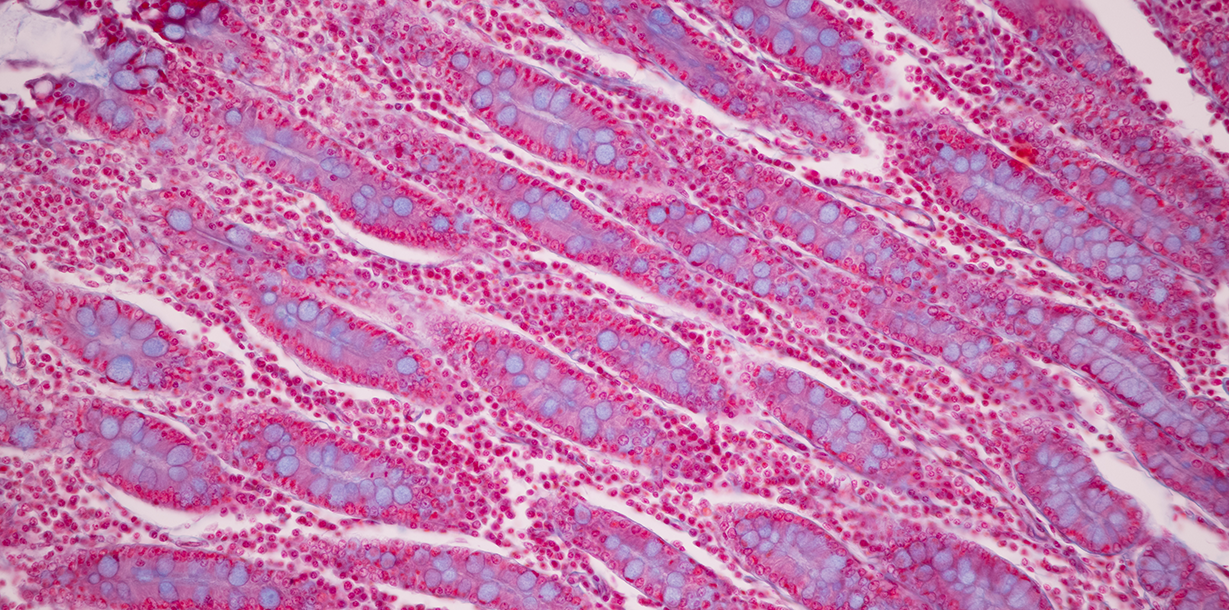Contribution of TMEM16A chloride channels to the complex action potential and contraction in human myometrium during normal and dysfunctional labour
Introduction: The calcium essential for uterine contractions in human myometrium occurs mainly via influx through calcium channels embedded in the cell membrane. The calcium influx is recorded as a sharp spike of depolarization, followed by sustained plateau of depolarization (~ 1-2 minutes), the action potential (AP). The open state of the spike channels is primarily regulated by membrane voltage via voltage-gated calcium channels (VGCCs). The mechanism(s) underpinning the plateau remains elusive.
Aims: The plateau, –20 to –30mV, is at the equilibrium potential for chloride in smooth muscle, and here we probed the potential involvement of the calcium-activated chloride channel TMEM16A.
Methods: Human myometrium was obtained following caesarean delivery at term not in labour (NIL) and during labour (IL) (n=7 women for both). Tension was recorded simultaneously with membrane potential, using small myometrial strips (3×1×0.5mm) and intracellular microelectrodes.
Results: In NIL tissues resting membrane potential was –61±1 mV. TMEM16A blocker CaCCinhib (5µM) reduced AP plateau amplitude by 9±1mV (p<0.0001) and duration to 37±7% (p=0.0026). This was associated with weaker contractions (to 11±3%). CaCCinhib was more effective in IL samples. Resting membrane potential was –56±1mV, and CaCCinhib completely abolished APs (spike and plateau) within 8 minutes.
We probed the possible source of calcium responsible for the plateau (influx via VGCCs, or release from ER store). VGCC blockade (verapamil) entirely abolished APs (spike and plateau, n=4 NIL). Solution containing 30mM K (Na replacement) induced a plateau to the same level and duration of spontaneous AP plateaux but was not accompanied by contraction (verapamil still present, n=4 tissues). Blocking filling of the ER store using CPA increased plateau amplitude and duration. Then, application of CaCCinhib reversed the effect of CPA on the plateau level and duration.
Oxytocin (OT 50nM) significantly prolonged the plateau. It also induced a period of after-hyperpolarization between APs, critical for successful labour. In NIL (n=4) and IL (n=2), the OT plateau and after-hyperpolarization were suppressed by CaCCinhib, reducing the OT response to simple spike APs and contractions to 46±3%.
Single-cell patch clamp studies demonstrated a CaCCinhib-sensitive current in ~50% of NIL cells (32 cells, n=7 women). CaCCinhib-sensitive current was 0.9±0.1 pA/pF in positive cells. All 15 cells from n=6 IL women had CaCCinhib-sensitive current (1.7±0.3 pA/pF (NIL/IL p=0.0207). Myometrial cells from one additional IL woman with failure-to-progress-in-labour (FPL) had CaCCinhib-sensitive current of 0.4 pA/pF (NIL similar).
Using Western blotting, TMEM16A channel protein expression was increased IL (118±1 n=6) versus NIL (51±8 n=6, p=0.005). This increase in expression failed to occur in tissues from 4 FPL women (51±10). Immunohistochemistry confirmed smooth muscle cell colocalization of TMEM16A and SM actin. TMEM16A area was greater IL (2.7±0.4 n=5) compared with NIL (1.2±0.2 n=6).
Conclusions: We identified a role for TMEM16A in the plateau component of the AP in human myometrium. TMEM16A facilitates large, long-duration contractions by “clamping” the membrane at a depolarized plateau level, and is implicated in the OT response. When TMEM16A expression fails, labour fails and emergency CS IL is required.
